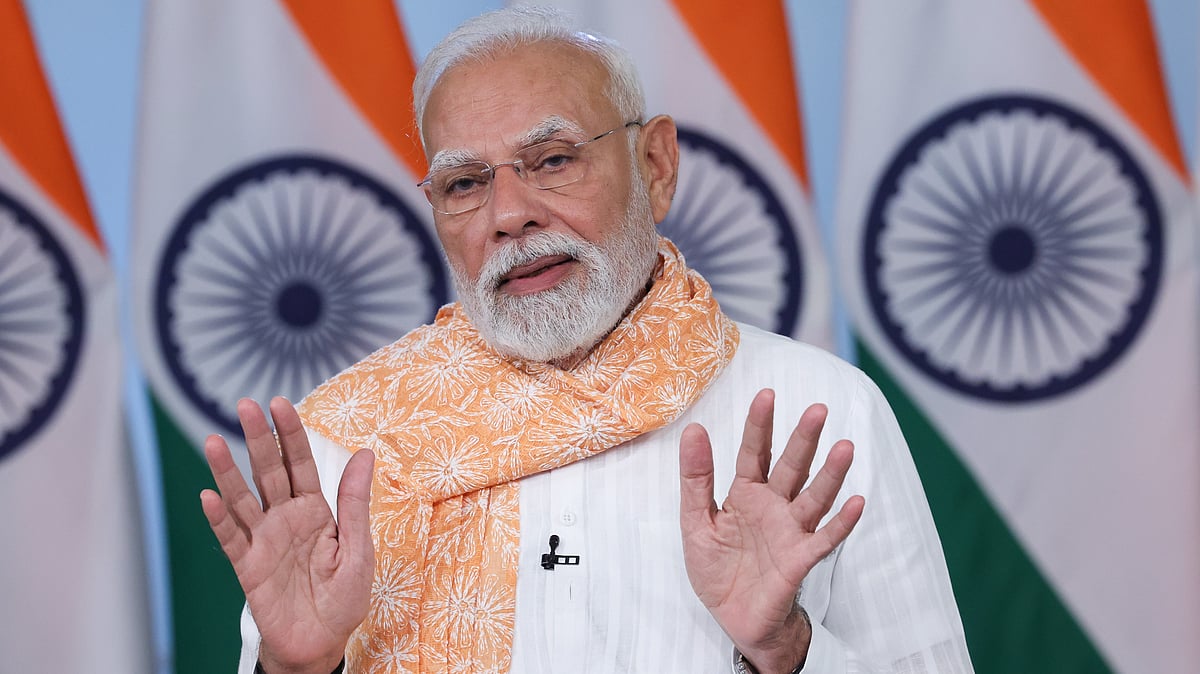Nation
PM pitches for 'swadeshi' goods, says GST reforms will accelerate growth
Modi calls the rolling out of GST 2.0 "bachat utsav'. The Opposition and a section of economists, however, have called these reforms 'too little too late'

A day before reduced GST rates come into effect, Prime Minister Narendra Modi on Sunday made a strong pitch for promoting 'swadeshi' goods and asserted that the next generation GST reforms will accelerate India's growth story, increase ease of doing business and attract more investors.
In his address to the nation, Modi said a 'GST bachat utsav (savings festival)' will begin from the first day of Navratri, and coupled with the income tax exemption, it will be a "double bonanza" for most of the people.
From kitchen staples to electronics, from medicines and equipment to automobiles, goods and services will be cheaper from Monday as the reduced GST rates on about 375 items come into effect.
The Opposition and a section of economists, however, have called these reforms 'too little too late'.
"On the first day of Navratri, the country is going to take an important and big step for Atmanirbhar Bharat. With the sunrise tomorrow, the next generation GST reforms will come into effect. A 'GST bachat utsav (savings festival)' will begin tomorrow," Modi said.
"You will be able to buy things you like more easily. The poor, middle class, neo middle class, youths, farmers, women, traders and shopkeepers will benefit from this," he said.
In this season of festivals, everyone's happiness will increase, Modi said.
"These reforms will accelerate India's growth story, increase ease of doing business and attract more investors," Modi said.
GST launch was right move: PM
In his address, Modi also defended the rolling out of Goods and Services Tax in 2017, saying it was the need of the hour.
The Opposition has repeatedly criticised the Modi government for rolling out a half-baked GST with multiple slabs, which defeated the very purpose of the tax reform. The Congress party had boycotted the midnight GST launch ceremony held at Parliament House in July 2017.
The Modi government's GST regime has also drawn widespread criticism for high tax rates on daily use goods, which resulted in decreased demand over the years.
With GST 2.0, the government has tried to offset some of that scuttling effect on the growth by decreasing tax rates and reducing the number of slabs.
Modi also said the GST move would benefit MSMEs big time.
Take pride in 'swadeshi'
Modi urged the people of the country to take pride in selling and buying indigenous goods.
The way the country's independence got strengthened by the Swadeshi movement, similarly, India's prosperity will be empowered by the mantra of 'swadeshi', he said.
The GST will now be a two-tier structure wherein the majority of goods and services will attract tax of 5 and 18 per cent. A 40 per cent tax will be levied on ultra luxury items, while tobacco and related products will continue to be in the 28 per cent plus cess category.
Till now, Goods and Services Tax (GST) was levied in 4 slabs of 5, 12, 18 and 28 per cent. Besides, a compensation cess is levied on luxury items and demerit or sin goods.
Mass consumption items like ghee, paneer, butter, 'namkeen', ketchup, jam, dry fruits, coffee and ice creams, and aspirational goods like TV, AC and washing machines will become cheaper.
Published: undefined
Follow us on: Facebook, Twitter, Google News, Instagram
Join our official telegram channel (@nationalherald) and stay updated with the latest headlines
Published: undefined